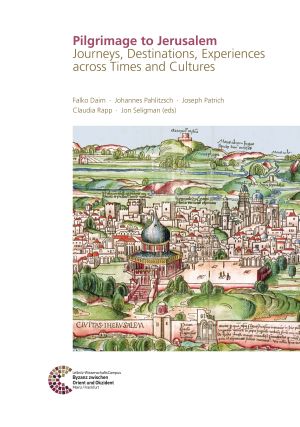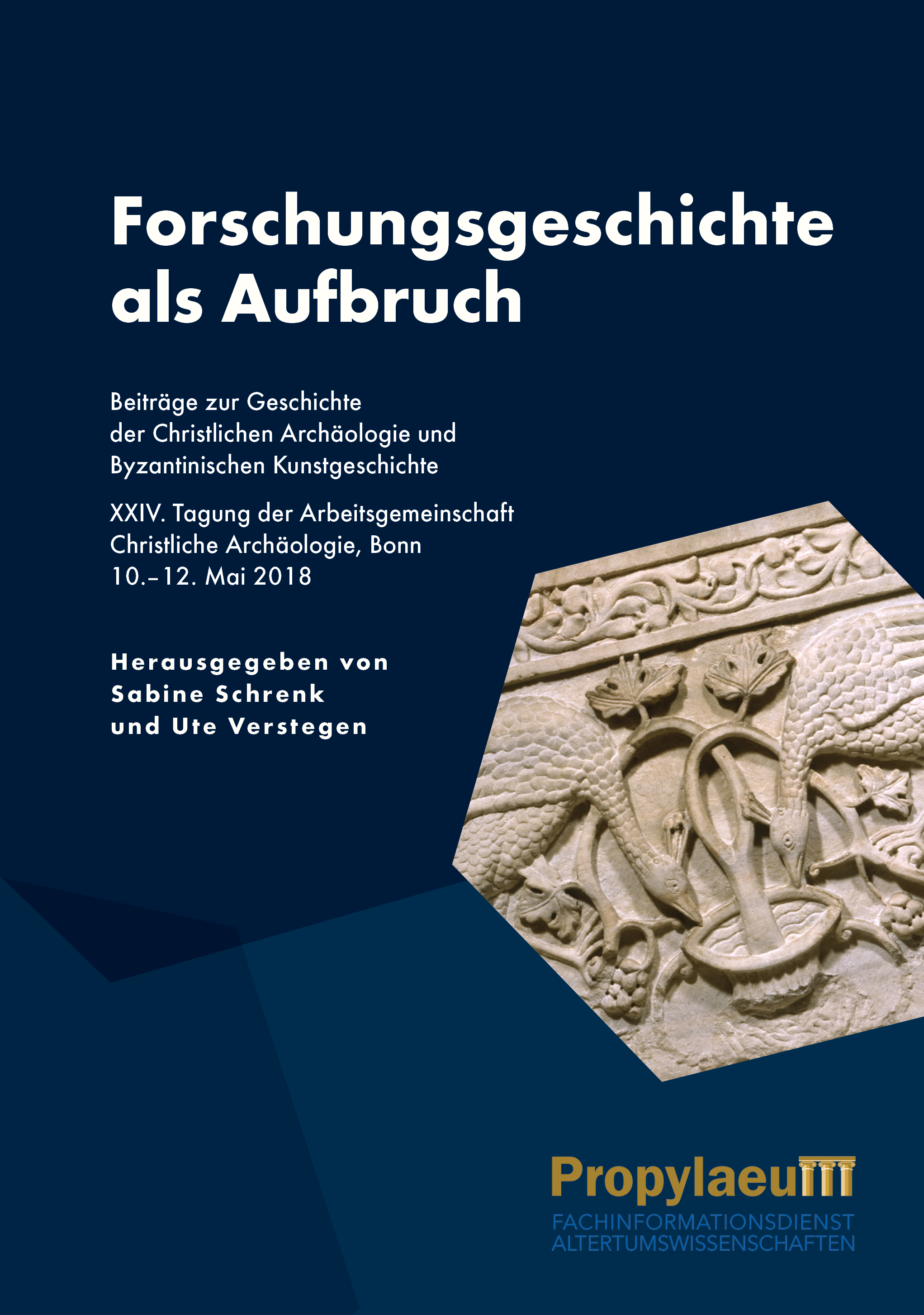Hamarneh, Basema
Pilgrimage to Jerusalem. Journeys, Destinations, Experiences across Times and Cultures: Proceedings of the Conference held in Jerusalem, 5th to 7th December 2017
Jerusalem is a city holy to three world religions: Judaism, Christianity and Islam. From the early Byzantine period, Christian pilgrimage here and to other holy sites became a »mass phenomenon«. Thousands of Christians set out to holy sites in Palestine, Egypt and other places in order to physically experience salvation history and seek divine intervention in their lives. Numerous travel reports, pilgrim guides and other written sources highlight important aspects of pilgrimage. In addition, many well-preserved churches, monasteries, hostels and other buildings, as well as rich archaeological findings, provide us with a vivid and synthetic picture of the history of pilgrimage to the Holy Land.
Forschungsgeschichte als Aufbruch: Beiträge zur Geschichte der Christlichen Archäologie und Byzantinischen Kunstgeschichte, XXIV. Tagung der Arbeitsgemeinschaft Christliche Archäologie, Bonn, 10.–12. Mai 2018
The contributions were written within the framework of the XXIV conference of the “Arbeitsgemeinschaft Christliche Archäologie zur Erforschung spätantiker, frühmittelalterlicher und byzantinischer Kultur” (AGCA) which took place in Bonn in May 2018. Representatives from institutionally based Early Christian archaeology and Byzantine archaeology and art history in Germany, Aust ria, Italy, Spain, Turkey, the Netherlands and Switzerland give an account on the subject’s history at their respective locations. Prominent researchers are portrayed, important national and international excavations are discussed, as well as the activities of national and international centers of research and of museums. The result is a broad overview of the history of the subject which clearly shows how multifaceted and rich in tradition Early Christian archaeology and Byzantine archaeology and art history are - a foundation for the subject’s future, for continuity as well as for changes.








